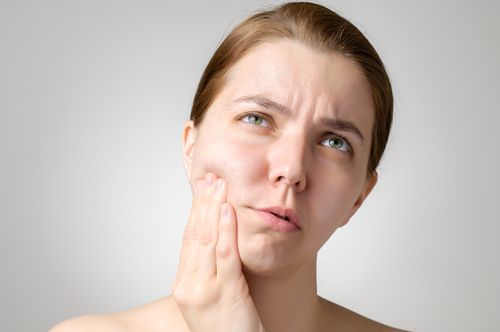
Stress has an impact on your health in more ways than you would think. While stress is commonly connected to headaches, it can also result in a variety of issues with your teeth and gums. Regular dental hygiene and checkups can help you avoid lasting damage to dental health.
Continue reading to learn about the five most prevalent dental problems caused by stress and how to address them.
1. Bruxism
The stress you experience during the day can affect the way you sleep. Bruxism occurs when you subconsciously grind or clench your teeth together while sleeping. While typically happening at night, this condition can also affect you during the day. During stressful events or intense situations that require extreme concentration, you may unconsciously clench your teeth together.
At some point in their lives, most adults will experience stress and bruxism. Because many of these people do not receive proper therapy, 50 percent to 95 percent of them develop chronic bruxism. This makes it one of the most common dental disorders caused by stress.
Bruxism can cause painful headaches when walking, loose teeth, enamel erosion, aching jaw, sensitive teeth, and TMJ issues if you don't change your lifestyle to relieve stress and prevent dental abrasion. To protect your teeth from harm, talk to your dentist about having a customized night guard. You could also see a dentist to get any damage to your teeth repaired.
2. Oral infections
Most people neglect practicing proper dental hygiene during stressful times. This can lead to a higher risk of developing gum disease. Any type of stress can also impact your immune system and increase your susceptibility to infections, including oral ones. Coupled with bad dental hygiene, this can result in inflamed gums, tooth decay, halitosis, and bleeding gums.
Schedule an appointment with a dental specialist if you suspect you may show any signs of gum disease or other oral infections. Gums disease and most oral infections are highly treatable by an experienced dentist if diagnosed in time.
3. Cold sores
Cold sores are a highly common viral infection caused by the herpes simplex virus. These painful blisters typically appear on your lips and around your mouth. Other symptoms of cold blisters include itching, burning, and tingling sensations. You may also experience redness, swelling, and pain. The outbreak of these fluid-filled blisters can be triggered by stress and associated changes in your immune system. Cold sores can be treated with antiviral medications, including creams, pills, and injections.
4. Canker sores
Like cold sores, canker sores can develop when you’re under stress. These small wounds with gray centers may appear in your mouth, leading to difficulty talking and eating. Rinsing your mouth with salt water may help reduce the pain. They typically subside within a week. But if your canker sores are persistent, schedule an appointment with a dental specialist to determine if they’re not caused by another disease.
5. Halitosis
Another dental problem related to stress is halitosis. You may have experienced this issue before when you were stressed. Some people, however, have had this condition for a long time, which makes eating and speaking difficult.
A multitude of things, including medicines and medical problems, can produce halitosis. If left untreated, this illness can lead to a variety of consequences, including difficulty eating, speaking, mouth sores, nausea, tooth decay, gum disease, and fungal infections.
Having halitosis requires greater care for your teeth and gums because saliva protects your teeth and oral tissues from damage. Make it a habit to visit the dentist on a regular basis. Your dental specialist can help you find a cure for halitosis and treat the damage it causes.